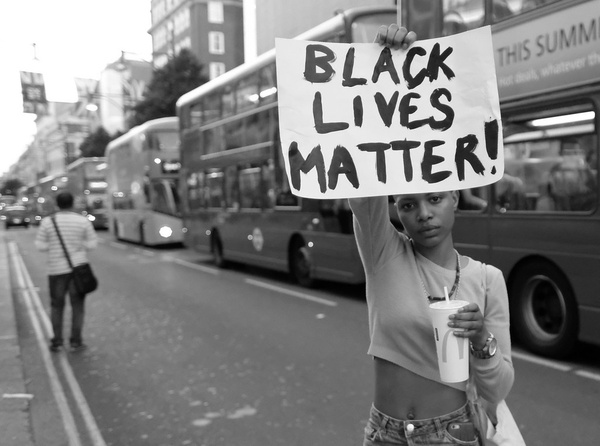The Impacts of the George Floyd Trial

Derek Chauvin was found guilty of all three charges last Tuesday in the trial for killing George Floyd last May. What does this mean for the American justice system, systemic racism, and the Black Lives Matter movement?
On the afternoon of Tuesday, Apr 20, Derek Chauvin was convicted of second-degree unintentional murder, third-degree murder, and second-degree manslaughter for the death of George Floyd on May 25, 2020. The trial was highly anticipated, as many -including Mr. Floyd’s family- anxiously awaited the verdict. Floyd’s death was recorded and widely shared on social media last May, causing world-wide protests. Philonise Floyd, George’s brother, was filmed crying and hugging the prosecutors as he said that he “…was just praying that they would find him guilty. As an African American, we usually never get justice” [CNN].
Too often in courtrooms, black people are dehumanized and their backgrounds are placed under intense scrutiny as to find any excuse for the violence and/or murder. In the 2014 Laquan McDonald case, where a black 17-year-old was shot 16 times by a white police officer, the perpetrator was initially not charged, as reports cited the fact that McDonald was wielding a knife and behaving erratically. The defense even tried to get the victim’s mother to testify that he had a history of violence, something that the officer did not know when he shot him [New York Times].
In Mr. Floyd’s trial, however, he was presented as a human. Not as a “…big Black creature guy,” as said by Mr. Floyd’s uncle, Justin Blake [New York Times]. He was presented as a man who died because of the excessive force used against him for nine minutes by an aloof police officer.
The defense did attempt to bring attention to Mr. Floyd’s past drug use, using it as evidence that “…Mr. Chauvin was dealing with an unpredictable subject and that the drugs contributed to [his] death” [New York Times]. However, the prosecution used this evidence to show how the country’s ongoing opioid crisis was affecting people, and Mr. Floyd’s girlfriend, Courteney Ross, testified about their mutual attempts to go clean.
The suggestion that Mr. Floyd possessed “superhuman strength” was even brought up by the defense. However, the prosecution quickly dismissed the claims, with prosecutor Steve Schleicher saying that “Those people don’t exist…The act of being large-it’s not a crime. It’s not a threat” [New York Times].
“What I think the defense did was put on an old-school defense… Hopefully that defense of dehumanizing African-American victims and putting the victim on trial, hopefully that defense is relegated to history,” said Paul Butler, former federal prosecutor and professor at Georgetown Law School [New York Times].
Many are quick to point out that the trial was “…just an exception,” as said by Justin Blake. Between the media coverage that the murder received, the clear video evidence, and Minnesota’s “spark of life” testimony that allows for family and friends of the victim to testify about him, it is clear that the case was treated differently than others like it. Tamir Rice, Eric Garner, Breonna Taylor, Daunte Wright, Adam Toledo, are all victims of police brutality, just to name a few. They each received a much different verdict than in Mr. Floyd’s case.
Just 30 minutes after Chauvin’s verdict was read, police shot and killed a black 16-year-old girl, Ma’Khia Bryant, in Columbus, Ohio [Anchorage Daily News].“I’m not just fighting for George anymore. I’m fighting for everyone around the world,” said Philonise Floyd [CNN].
One verdict cannot bring George Floyd back to life, nor can it stop the epidemic of violence and prejudice faced by BIPOC (black, indigenous, and people of color). But Floyd’s trial was a turning point for how black people are finally being seen for their humanity in and out of the courtroom, a fundamental belief of the Black Lives Matter movement. Political figures are also stepping up and enacting legislation, such as the George Floyd Justice in Policing Act, which will end racial profiling, ban chokeholds on suspects, eliminate no-knock warrants, and reform police training. It is currently sitting in the Senate, but faces opposition from Republicans who are wary about setting federal standards for police [CNN].
Chauvin faces up to 40 years in prison for second-degree murder, 25 years for third-degree murder, and 10 years for manslaughter [CNN]. He will be sentenced in June. The three other officers who were involved in the murder, Thomas Lane, J. Kueng, and Tou Thao, will face trial in August on charges of aiding second-degree murder and manslaughter [Chicago Tribune].
“I feel like [the jury] walked wishing that they could have met my brother, because of all the great things people had to say about him. Because that’s who he really was- he was not at all the things the defense was making him out to be,” said Bridgett Floyd, Mr. Floyd’s sister [New York Times].

